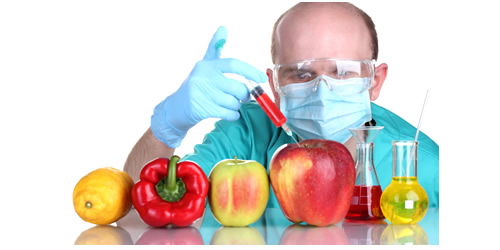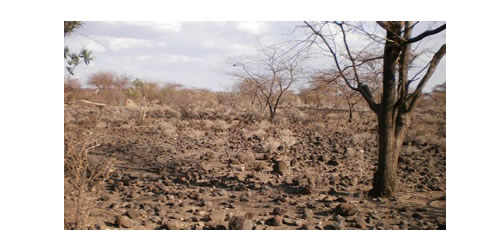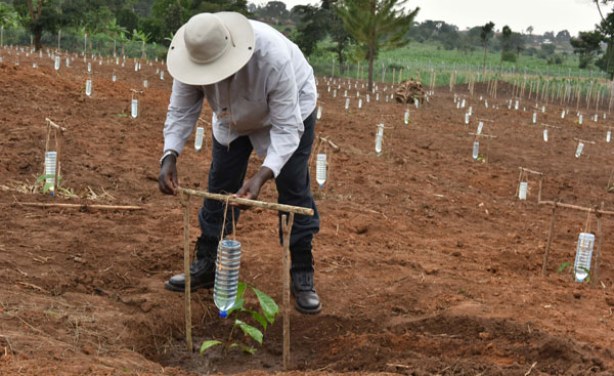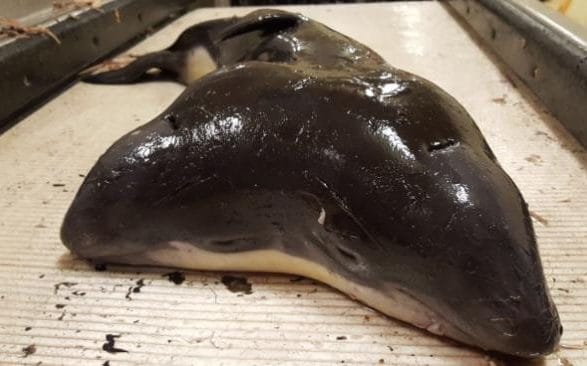World needs tech — even GMO — to produce food, say advocates

The reason for this is the great strides made in food growing and production technology. However, despite the unprecedented tech-driven plenty in the world today, many voices are speaking out against that technology.
“It’s actually even more of a paradox, because the people who are opposed to using technology in food production have full stomachs themselves,” Halaby said, noting that almost all the groups opposed to matters such as genetic modification of plants, in order to improve their growth, are in Western countries.
There aren’t many in places like Bangladesh, where, noted Halaby, farmers are anxious to participate in the first GMO production project in the country’s history — raising genetically modified eggplants that can thrive in dry conditions.
Those opposed to the use of high-tech to modify crops say there are good — scientific — reasons to oppose the technology. They claim that the many studies cited by pro-technology advocates such as Halaby are either inaccurate or misleading.
Halaby himself is uniquely qualified to discuss how technology has helped farmers. AgriCapital, whihc he established 30 years ago, is not an investment bank per se — Halaby prefers the term “advisers” to describe what AgriCapital does — but provides investment-bank type services, including helping companies secure financing; putting together M&A deals; and advising companies on industry issues and direction.
Many of the deals he works are tech-oriented, financing the use of new machines or growing methods that his investors hope will enhance productivity and increase profits. And, as a result, he is familiar with most of the technologies.
Halaby was speaking on the sidelines of the recent Agrivest conference. Held in Rehovot last month on the grounds of the Weizmann Institute, the conference featured close to a dozen Israeli agritech start-ups that have developed innovative agricultural technologies.
The conference was an initiative of Invest in Israel, the investment promotion center at the Israeli Ministry of Economy, along with the Trendlines Group and Trendlines Agtech, the only agritech-focused incubator in Israel; and GreenSoil Investments, the only agritech VC in Israel.
According to Steve Rhodes, chairman and CEO of the Trendlines Group, “Israeli agritech is on the map, with many exits in the last year and, I believe, many more on their way in the coming year. The global growth of investment in agritech 2014 reached a record-breaking $2.36 billion, which is testimony to positive trends in this sphere.”
Many believe that the jury is still out on GMO’s safety. There are those who claim that genetically modified organisms are responsible for a wide variety of environmental ills, such as the die-off of bees, the dramatic increase in autism among children, and more.
Halaby, however, doesn’t buy it. “All scientific studies conducted so far show that GMO is safe. The opposition to it, especially in places like the European Union, where GMO is almost totally banned, is just puzzling.” Syndromes attributed by some to GMOs, including the increase of autism and the disappearance of bees, could have any other number of causes.
But Halaby’s point is not necessarily the validity of a specific technology; he’s a banker, not a scientist, and what concerns him is the willingness, even the rush, to ignore science and promote other agendas that are not necessarily based on objective scientific observation and study. While opponents of GMO say that we can’t assume we know everything, and that evidence of GMO damage to the ecosystem may only show up at a later date, what bothers him is the assumption by many in the anti-GMO camp that there is some sort of “conspiracy” going on to introduce changes in the food chain.
An example is companies like Monsanto, which drive “real” seeds out of the market in order to force farmers to plant their genetically modified seeds. These seeds produce fruit either with no seeds — or seeds that won’t grow — forcing farmers to be dependent on their suppliers for their seeds.
Nonsense, said Halaby. “In the 1930s, there were three times as many dairy cows in the United States as there are today, and the population was one-third of what it is today, and there was just about enough milk to satisfy demand.
“Today,” he continued, “there is also enough milk to satisfy demand, but that demand has exploded, because not only is milk used for drinking, but in a large number of dairy products that were not available in the 1930s.
“Given that there are far fewer cows per thousand people now than there were then, it means that cows are more than nine times more productive than they were 80 years ago. That change is due entirely to the efforts by scientists to find safe and effective ways to increase milk production. This is just one example of how science has improved food supply,” added Halaby.
Another “fan” of agri-science is Sam Fiorello, COO of the Donald Danforth Plant Science Center in St. Louis, a nonprofit science research center that develops plant science technologies. “We need a narrative for agricultural science, just as there is a narrative for the other agendas,” said Fiorello.
“But we really have no choice. By 2050 we will need to feed a lot more people; we are going to have to produce as much food in the next 35 years as we have in the last 8,000 years. To do that, we are going to need to use all the tools at our disposal — and GM cannot be ruled out,” he went on.
Fiorello’s comments, as well as Halaby’s, are anathema to a large number of activists, including, in Europe, government officials who are solidly opposed to GMO. In Europe, GMO crops are strictly regulated and extensively tested before being allowed for use. Currently, 49 GMOs — eight GM cottons, 28 GM maizes, three GM oilseed grapes, seven GM soybeans, one GM sugar beet, one GM bacterial biomass, and one GM yeast biomass — have been authorized for use in Europe. All others are currently banned (although it should be noted that animal feed produced in the US from GMO crops is in widespread use in Europe).
Europe’s wariness of GMO is well warranted, state opponents of the technology, who say they can cite their own scientific studies. According to groups like the Non-GMO Project, these studies “demonstrate risks, and clear absence of real benefits have led experts to see genetic modification as a clumsy, outdated technology. They present risks that we need not incur, given the availability of effective, scientifically proven, energy-efficient and safe ways of meeting current and future global food needs.”
According to the group,”GM foods are not properly tested for human safety before they are released for sale. In fact, the only published study directly testing the safety of a GM food on humans found potential problems. To date, this study has not been followed up.”
If no GMO-related problems have yet appeared on the radars of scientists or doctors, the Project adds, that is due to the fact that “GM foods are not labelled in the US and other nations where they are widely eaten, and consumers are not monitored for health effects. Because of this, any health effects from a GM food would have to meet unusual conditions before they would be noticed.”
But those studies are far and few between — and much less conclusive than the ones supporting GMO, said Fiorello. He claimed that “the scientific evidence over tens of millions of acres of plantings is that it is a safe technology.”
His opinion is that Europe and the other places where the technology has been banned will eventually come around; the need is too great. “The anti-science narrative is strong, but I believe that as scientists learn to tell their story better — and the need becomes more evident — there will be more acceptance of the work we are doing.”
Source: timesofisrael.com





